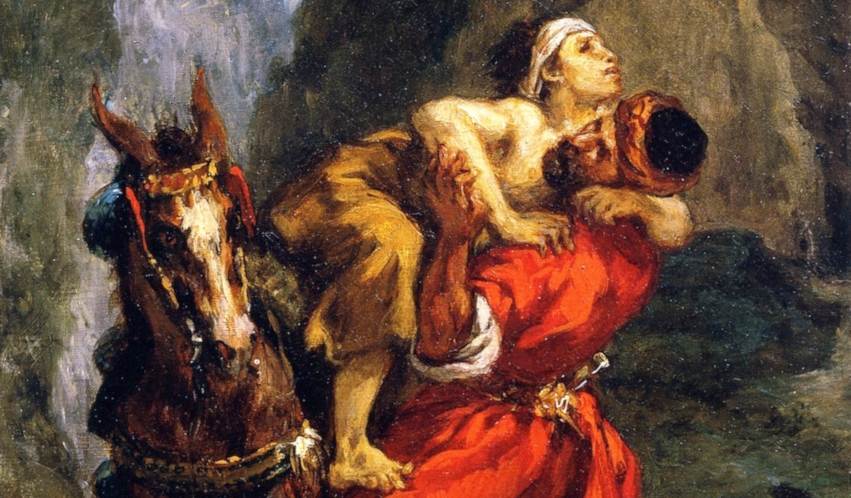The Good Samaritan
Many of the world’s humanitarian organisations have Christian roots. The Red Cross was founded by the Swiss Protestant, Henry Dunant, after he witnessed the aftermath of the 1859 Battle of Solferino. The Salvation Army is an overtly Christian organisation (though the “Militant Wing” is sadly fictional) with Methodist roots. The YMCA grew out of Bible and prayer meetings. Habitat For Humanity benefitted from the Baptist Jimmy Carter’s remarkable post-presidency. The Samaritans were founded by a London Church of England vicar after taking a funeral for a girl who had committed suicide.
The Samaritans of course take their name from Jesus’ parable of the Good Samaritan. The parable was given as an answer to the question, “Who is my neighbour?”
The reason for the question was to contextualise, and therefore limit, the obligations imposed by the the Law, as summarised in Deut 6:4-5 and Lev 19:18:
“Love the Lord your God with all your heart and with all your soul and with all your strength and with all your mind; and, ‘Love your neighbor as yourself.”
This is the human impulse. We’re happy to love others; we just want to choose who those others are.
So Jesus narrates a man left for dead on the Jericho Road. Two “good” Jews, a priest and a Levite, both have more important things on their mind. A Samaritan–a member of the tribe hated at that time by the Judeans (and, ironically, Judea’s literal neighbour)–takes pity.
“He went to him and bandaged his wounds, pouring on oil and wine. Then he put the man on his own donkey, brought him to an inn and took care of him. The next day he took out two denarii and gave them to the innkeeper. ‘Look after him,’ he said, ‘and when I return, I will reimburse you for any extra expense you may have.’ Which of these three do you think was a neighbor to the man?” (Luke 10:34-36)
The neighbour is thus any person you come across who needs help. Jesus will later say of those who enter the kingdom of heaven:
Come, you who are blessed by my Father; take your inheritance, the kingdom prepared for you since the creation of the world. For I was hungry and you gave me something to eat, I was thirsty and you gave me something to drink, I was a stranger and you invited me in, I needed clothes and you clothed me, I was sick and you looked after me, I was in prison and you came to visit me. (Matt 25:34-36)
And Jesus would of course take pity–have mercy–on all of us, even though our wounds are, fundamentally caused by our rebellion against him.
